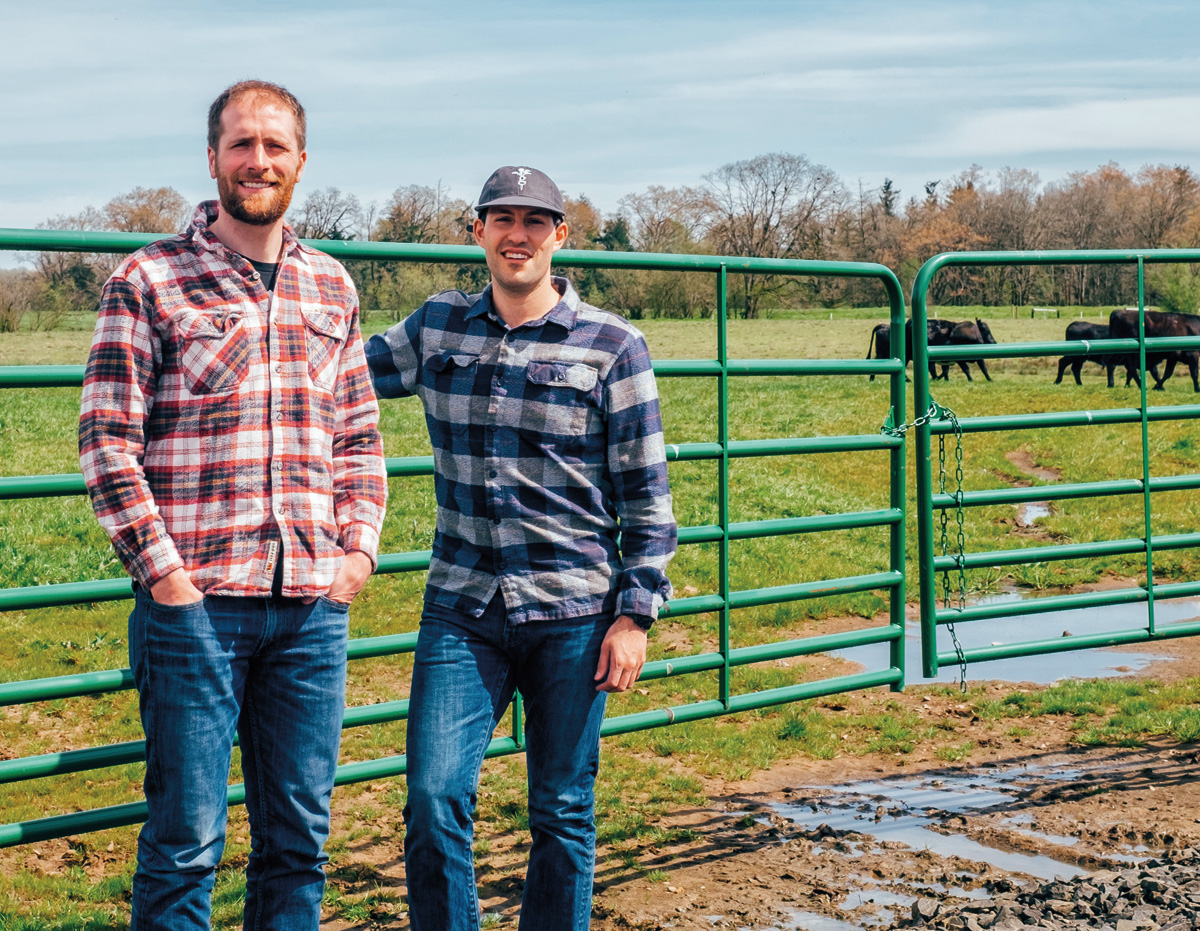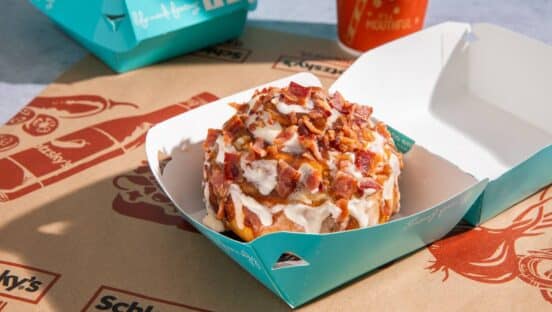Ben Friedman and Brad Gillis, cofounders and co-CEOs of organic sandwich brand Homegrown, met in kindergarten. The two split paths for college, with Gillis attending Bowdoin College in Brunswick, Maine, to major in geology, and Friedman attending Boston University, where he studied advertising and sociology. When the friends graduated in 2008, both felt the tug to return to their hometown of Seattle. Within less than a year, Friedman and Gillis moved back West and opened their passion venture: an organic fast-casual concept.
More than a traditional restaurant, Homegrown is a mission-focused company aiming to reduce environmental impact, craft good food fast, provide great service, and foster employee growth. From the start, the restaurant has been driven to grow with purpose and not compromise its commitment to sustainably sourced food and eco-friendly practices along the way.
Homegrown’s menu features a selection of sandwiches, bowls, and breakfast options carefully crafted with local ingredients. The Charred Broccoli sandwich, for example, marries its namesake ingredient with melted feta, caramelized onions, and chermoula aioli to become the best vegetarian sandwich in the world—per Friedman—while the Matcha Chicken Avocado bowl brings together warm amaranth and quinoa with a basil-lime matcha dressing.
The brand has eight locations in Seattle and two in San Francisco, along with Homegrown Sprouting Farms in Woodinville, Washington, that serves as a model for sustainable agriculture and sources to its restaurants during high season.
QSR talked with Friedman about sustainable sandwiches, starting a restaurant together with no experience, and Homegrown’s mission-driven future.
Fixing the system
Brad and I are avid outdoorsmen, having grown up in the Pacific Northwest. And we’ve been passionate about conservation from a very young age. Independent reading like Michael Pollan books connected the dots for us that the food system was a leading cause of environmental degradation.
We had no experience whatsoever, so it was really by the seat of our pants. We tried to be as analytical as possible, but we had a knack for brand marketing and tried to filter every decision through the lens of, “What would the brand do?” Homegrown stood for environmentalism and health, so we let our mission guide us through decisions as much as possible.
We started Homegrown to try to make the food system more sustainable. We’re growing food in ways that don’t degrade the environment so future generations can enjoy a healthy planet like we do.
We wanted to create a business that solved an environmental problem, and we saw huge opportunities in agricultural sector. There are so many ways that humans are growing food that are harmful, whether it’s spraying pesticides or using hormones and antibiotics or farming in ways that cause soil erosion.
A farm for the table
In 2014, we launched Homegrown Sprouting Farms in Woodinville, Washington, our very own certified organic farm that supplies seasonal, organic produce for our menu. We did not have a background in farming, so we partnered with a local edible landscape company to run it with us.
The farm serves as a model for sustainable agricultural practices, including no-till farming methods, eco-friendly weed and pest controls, and drip irrigation.
A company called Ecolibrium Farms manages the farm in close partnership with our team. We also have farm days where our partners (employees) can work a paid shift on the farm to learn about organic farming and sustainable agriculture.
During the peak growing season, nearly 100 percent of our tomatoes and cucumbers come from the farm, but it tapers rapidly as we get into colder seasons.
On a mission
I think Homegrown has served to democratize a style of eating and food sourcing that people in most communities could only find at select farm-to-table, fine-dining restaurants when we started nine years ago. We’ve increased the access to slow food.
Making the world a healthier place is really what drives us to keep growing Homegrown. We’d like to build it into a national brand. We believe that the more stores we operate, the more demand we can create for sustainable food. In doing so, we’ll help push the food system to be healthier for all stakeholders: humans, farm animals, and the earth.
Note: In June, Homegrown cofounder Ben Friedman announced on Instagram he would be stepping down from his role with the company to travel. “I am so grateful for everyone’s support, feedback and evangelism throughout the years,” he said. “To the say the least, I am very stoked to see what’s next for the [Homegrown] brand, and I will be rooting very loudly and obnoxiously from the sidelines.”











